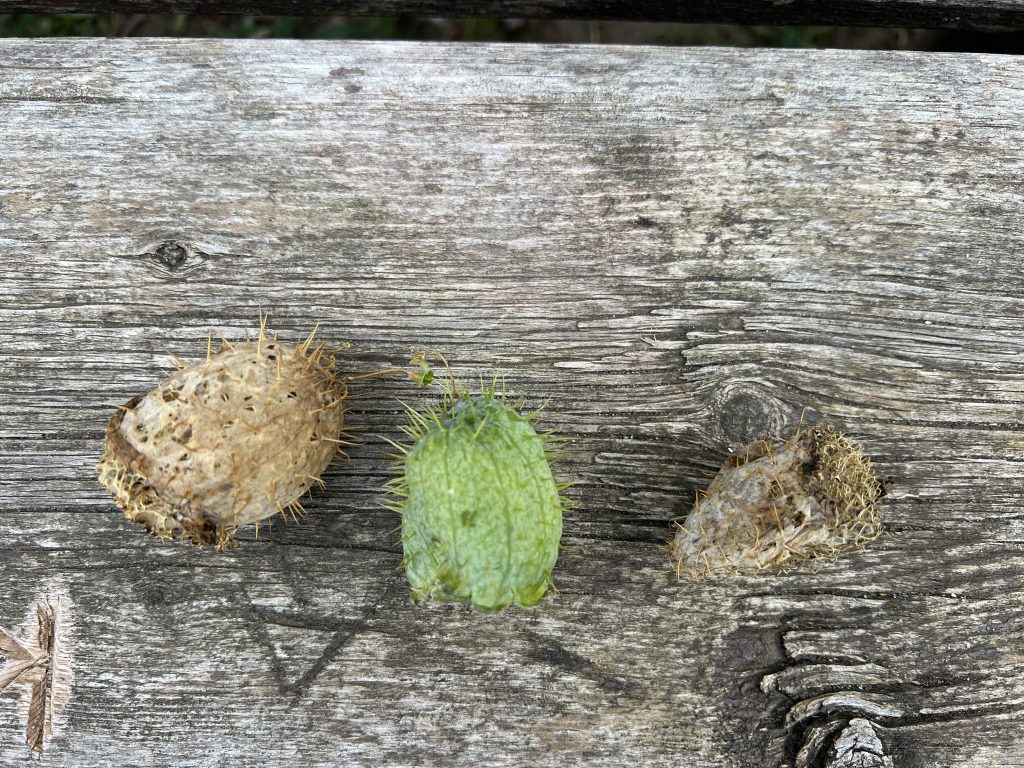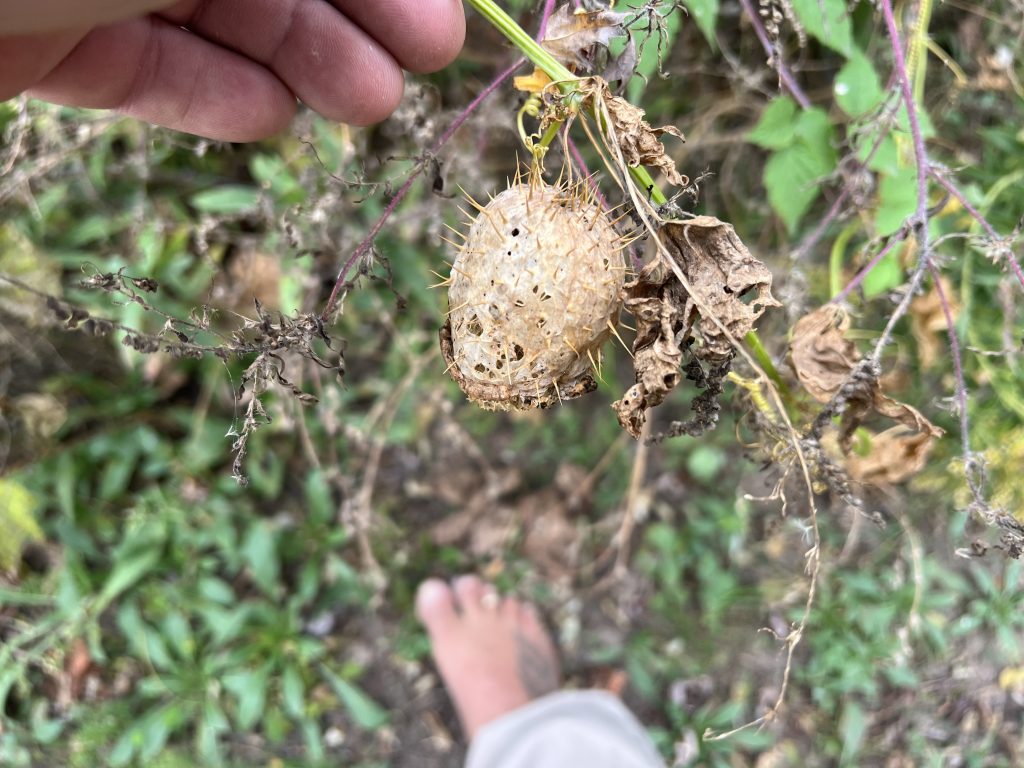Wild cucumber, scientifically known as Echinocystis, is a unique and versatile plant found in the wilderness of Southern Ontario, Canada. While its name might suggest a relation to the common garden cucumber, it is an entirely different species that has proven to be a valuable resource for bushcraft and survival enthusiasts. In this article, we’ll explore the characteristics, uses, and locations of wild cucumber in Southern Ontario.
Echinocystis lobata, commonly known as wild cucumber, is a native vine that thrives in the deciduous woodlands and along the edges of water bodies in Southern Ontario. Its name is derived from the Latin “echinos” (meaning spiny) and “kystis” (meaning bladder), referring to the plant’s distinctive, spiky seed pods.


When foraging for wild cucumber, remember to do so responsibly and sustainably. Harvest only what you need and ensure that you leave no trace to preserve the natural environment.
In conclusion, wild cucumber, or Echinocystis, is a valuable resource for bushcraft and survival enthusiasts in Southern Ontario, Canada. Its multiple uses, from fire-starting to natural cordage, make it a versatile tool in the wilderness. By knowing where to find it and how to utilize its features, you can enhance your bushcraft skills and improve your chances of survival in the great outdoors.
Barefoot Bushcraft acknowledges the land on which we gather was the historic territory of the Haudenosaunee and Anishinaabe peoples, many of whom continue to live and work here today. This territory is covered by the Upper Canada Treaties and is within the land protected by the Dish With One Spoon Wampum agreement. Today this gathering place is home to many First Nations, Métis, and Inuit peoples and acknowledging reminds us that our great standard of living is directly related to the resources and friendship of Indigenous peoples.
Error: Contact form not found.
Error: Contact form not found.
Error: Contact form not found.
Error: Contact form not found.
Error: Contact form not found.
Error: Contact form not found.
Error: Contact form not found.
Error: Contact form not found.